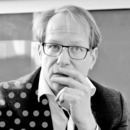Contact
Work group
Human Rights
Till van Rahden is a Full Professor of German and European Studies at the Université de Montréal where he held a Canada Research Chair from 2006 to 2016. He is also a Research Professor at Carleton University and a non-resident Senior Fellow at the Forschungskolleg Humanwissenschaften in Bad Homburg. He specializes in European history since the Enlightenment and is interested in the tension between the elusive promise of democratic equality and the recurrent presence of cultural differences and moral conflicts. His publications include: Jews and other Germans: Civil Society, Religious Diversity and Urban Politics in Breslau, 1860-1925 (The University of Wisconsin Press, 2008); Demokratie: Eine gefährdete Lebensform (Campus, 2019); Vielheit: Jüdische Geschichte und die Ambivalenzen des Universalismus (Hamburger Edition, 2022), as well as seven co-edited volumes, most recently (with Johannes Voelz) Horizonte der Demokratie: Offene Lebensformen nach Walt Whitman (transcript, 2024).
Working Group
Human Rights
Research Project
Universalism and Its Discontents: Toward A Provincialized History of Political Thought in Europe
The point of departure is the crisis of universalism that marks the first decades of the 21st century. Europe has been provincialized as voices from the Global South and social movements challenge Western hegemony. Often the concepts of universalism and particularism are seen as mutually exclusive. Philosophers, in contrast, often emphasize the dialectical relationship between the concepts. Any notion of the particular advances an idea of the universal while no idea of the universal can transcend its particular context. Such a challenge to essentialist and binary definitions calls for a focus on the entangled nature of the particular and the universal. The two concepts are understood as mutually constitutive rather than mutually exclusive. Instead of aiming to distill an abstract universalism, the focus here is on iterative, horizontal, or rooted forms of universalism. If the purpose is to offer a provincialized history of political thought, a focus on the history of universalism and particularism might benefit from a study of additional concepts that allow us to better understand the entangled nature of universalism and particularism. Such a list includes keywords such as assimilation, civility, cosmopolitanism, democracy, difference, equality, identity, justice, multiculturalism, secularism, tolerance, or the conceptual couple of minority and majority.


